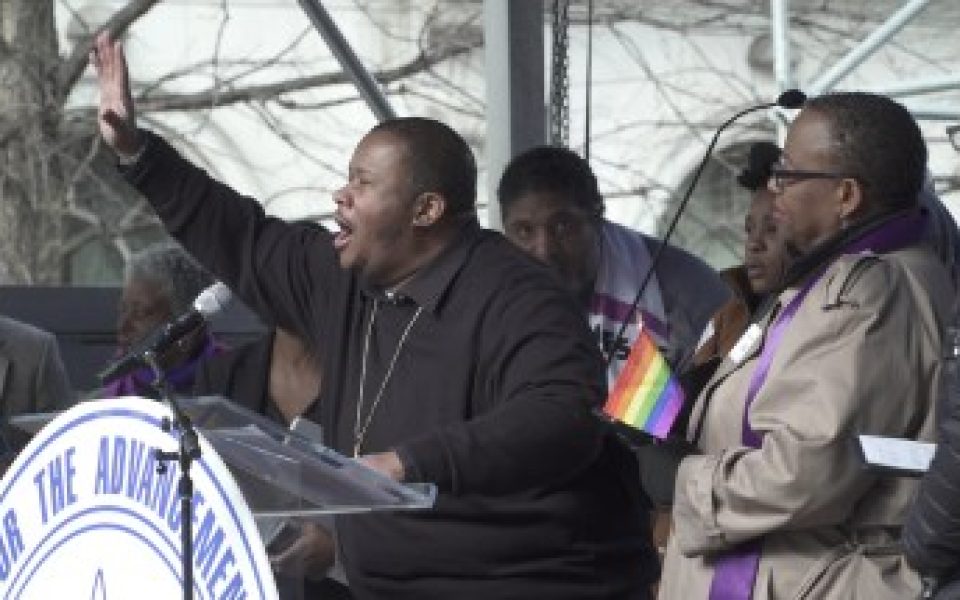Dir. Megan Q. Daniels, USA, 2020, 65 min.
Screening virtually and at Marketplace Drive-in on Saturday, May 8 @ 8:30 p.m. Learn more here.
Dawn Flynn’s office is unlike many pastors’ offices in North Carolina. She has crosses and religious symbolism around the room, true, but she also has a pride flag. Flynn is one of just 30 trans pastors in the US at the time of filming, and one of six in NC.
Megan Q. Daniels’ Proper Pronouns is full of the intersections between trans identity and religion. Along with Flynn, Daniels follows Debora Hopkins, Mykal Shannon and Liam Hooper — all of whom are transgender pastors in NC working to shed light on trans communities within the church.
“The core is awareness,” Shannon says in the film. “Without that, you don’t have an issue to fight because no one is aware of it.”
Hopkins puts it more succinctly: “We belong, just like anyone else.”
As the film progresses, the viewer delves deeper into Flynn and Hooper’s cases, and gets a glimpse into each of their pasts. Each gets a chance to speak about their difficulties transitioning, and the joys of it. Hooper says in a sermon that there is a duality to the transgender existence, that there is exploitation, but also resistance.
The pastors also emphasize intersectionality throughout the film. Shannon, for example, expresses the importance of diversity even in such a small group. He calls for the church to be there for trans folks, just like the church showed up during the civil rights movement. Likewise, Hooper speaks about his financial struggles, how being a pastor and transgender has limited his options in terms of funding.
In the film’s specificity, viewers empathize with Flynn, Hopkins, Shannon and Hooper, and come away with a better understanding of the systemic issues that exist for trans individuals, particularly for those who choose to remain in an institution that traditionally has not served them.
Find our full guide to RiverRun 2021 here.
Join the First Amendment Society, a membership that goes directly to funding TCB‘s newsroom.
We believe that reporting can save the world.
The TCB First Amendment Society recognizes the vital role of a free, unfettered press with a bundling of local experiences designed to build community, and unique engagements with our newsroom that will help you understand, and shape, local journalism’s critical role in uplifting the people in our cities.
All revenue goes directly into the newsroom as reporters’ salaries and freelance commissions.


Leave a Reply